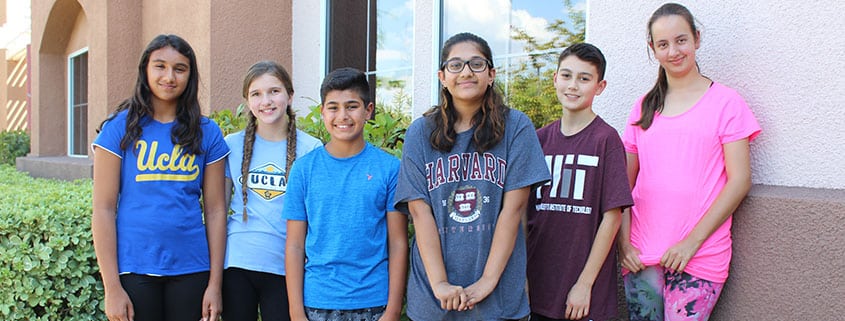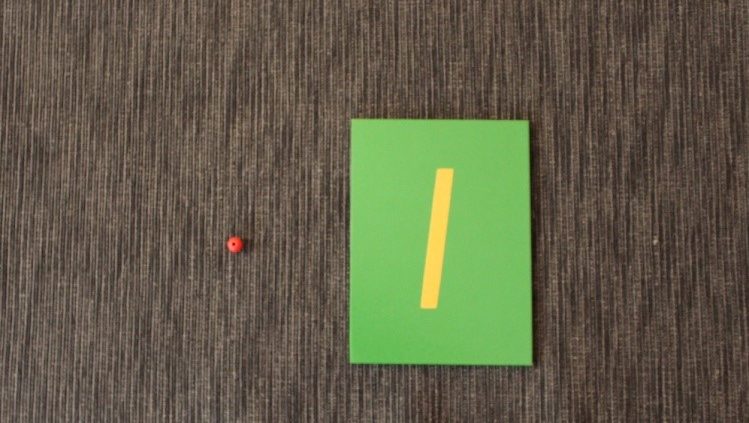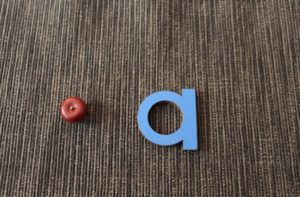Ambassador Leaders
Leadership is a complex and useful skill that may lay dormant in a young person until they are actually called upon to use it. This summer, six FMS middle school students were invited to attend a week-long leadership training program sponsored by the Ambassador Leaders program. Some of our students attended the training at Harvard Law School and others went to UCLA. Each student was nominated by their teachers and then submitted an application to be chosen to attend the training.
Their week was filled with seminars on team building, communications, and learning how to identify their own leadership styles. Successful business people presented during the week modeling many of the leadership traits the students had learned about. Our students were challenged with creating a community service project and figuring out its motto, purpose, and a strategy for implementing the idea. Some of our students came up with an idea focused on water; preserving it and providing clean water supplies to communities which they called “One Drop.”
When asked, “What did you learn about yourself through this experience?” One student commented that the experience “opened her up,” another had to “step out of her comfort zone and engage in conversations with people she had just met.” A student also commented that his group had to speak about their community project idea in front of an audience of over 100 people, and he was “pleased with his performance.” The experience certainly provided opportunities for students to become more confident in public speaking and collaborating with peers.
A Blended Montessori Approach
FMS is a blended Montessori program. Montessori materials for teaching Math, Language, Reading, Science and Cultural lessons are the foundation for lesson giving at the primary level and are used in varying degrees in the upper grades. We follow the tenet of presenting the concrete material first, such as using a single red bead to represent “one” and the green bead bar to represent “two.” Then, as the student becomes more familiar with the process of handling the concrete materials and their knowledge solidifies, they are introduced to more abstract representations, such as writing the number 1 and then eventually learning the functions of addition, subtraction, multiplication, and division.
Sounds are presented first when teaching language to 3 and 4 year olds so that when letter recognition is developed, a young student begins to see the letters put in a pattern to form words, which eventually leads to pre-k students reading simple books.
The Montessori method is one that is “hands on” and process driven. This methodology is used throughout each of the ascending grades at FMS. Much of the teaching is done in small groups, where again, specific needs and abilities of the students are addressed. Once a student is in lower elementary (first through third grade), Montessori materials are still used in the classroom, but traditional learning materials are used to solidify a students knowledge, preparing them to function effectively in any school setting. For example, “Words Their Way” is a spelling and comprehension tool used to develop writing skills, as well. This starts in first grade and carries through sixth grade. Middle school students focus on etymology, while learning the deeper connections of how words were created and applying their meaning in their writing.
Starting in third grade, each student is given the Stanford 10 Achievement Test rating the student’s reading, comprehension, spelling, vocabulary, math and listening skills. A record of these scores is posted on our website under the ABOUT category then under TEST SCORES. For over ten years, FMS Montessori students have consistently demonstrated above grade level mastery as a mean population. These results are measurable indicators that FMS students are standing on solid academic ground and can compete effectively when measured against traditional school standards. Chrome notebooks are introduced to upper elementary (fourth through sixth) students as a tool for researching and writing papers. Middle school students continue to use Chrome notebooks for research and Google classroom.
All of the “non-Montessori” tools are used to solidify and refine the education process at FMS. We are committed to helping each student develop to the best of their abilities, both on an academic and social/emotional basis. Learning “how to be with other people” is just as vital as learning the sounds of the alphabet, or composing a well written paper. FMS is an institution that feels warm and inviting. Children, parents, teachers, and administrators take an active role in our learning community, contributing to the collective experience we share during the school year. FMS is a community of learners, inspired by the Montessori philosophy to do our very best every day.
Planet Lesson
Cooking projects in the FMS kitchen happen on a regular basis, filling the office with delicious scents and actively involving students in the preparation of food. Sometimes, the food that is being made is to celebrate birthdays for the month. Often there is an opportunity for our students to experience an academic lesson represented in a food item. Last week, P2 students entered the kitchen and found that the entire solar system was laid out on the table in front of them.
The task was to paint a plate with yogurt signifying the atmosphere and the boundless space around us. The sun was represented by an orange slice, with Earth showing up as a slice of kiwi. The asteroid belt was laid out by using raisins. Each piece of fruit was proportional in size, representing the scale of the planets in space. This visual and tactile lesson was further enhanced when the students were able to eat the fruit and use their sense of taste. Space was explored, a lesson imparted, and a memory made when the fruit was eaten…a true Montessori experience.








